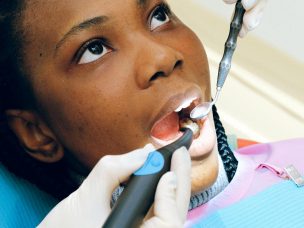Dupilumab is effective for improving quality of life, sleep, and signs and symptoms of AD in children aged 6-11 years.
Atopic dermatitis (AD) is the most prevalent inflammatory skin condition in infants and children. AD appears within six months of age in 45% of cases, less than one year of age in 60% of cases, and within the initial five years of age in 89% of cases. Severe AD accounts for approximately 8% of AD cases in children of ages 6-11 years. The management of AD in the pediatric population comprises topical corticosteroids and emollients. Systemic drugs are used when phototherapy and topical therapy are inadequate for managing AD. However, systemic drugs have a greater risk for systemic adverse events. Dupilumab is a human monoclonal antibody responsible for inhibiting the interleukin (IL-4) receptor alpha subunit, which IL-13 and IL-4 share. This drug is approved to treat atopic diseases, including asthma and AD.
This multicenter, observational, and retrospective study aimed to assess the safety and effectiveness of dupilumab in treating AD in children aged 6-11 years in Italy. The study was published in the journal Pediatric Drugs. The data was acquired from pediatric and dermatological referral centers in Southern, Northern, and Central Italy. Dupilumab was administered via subcutaneous route. The dosage was 300 mg on D1, 300 mg on D15, and 300 mg Q4W. The study included 55 children with AD, consisting of 43.64% (n=24) males and 56.36% (n=31) females.
The study findings suggest that the enrolled children with AD demonstrated significant improvement in the Eczema Area and Severity Index (EASI) score along with an increase in the Dermatology Life Quality Index (DLQI). Of the total participants, 12.73% (n=7) experienced a minimum of one adverse event during the treatment, which was 16 weeks long. Three patients had conjunctivitis at baseline, whereas two of the study participants developed dupilumab-associated conjunctivitis during the observation period. Conjunctivitis at baseline in three patients worsened on treatment with dupilumab. Adverse events during the treatment and observation period also included headache and injection-site reaction. Asymptomatic SARS-CoV-2 infection occurred in 7.27% (n=4) of the children.
The effectiveness of dupilumab is associated with improvement in the signs and symptoms of AD, including itch. The authors observed a decline in the Pruritus Numerical Rating Scale (P-NRS), accounting for a 68.39% reduction in P-NRS in the study participants from baseline to W16. The study confirms the effectiveness of the drug in different aspects of AD, including quality of life, sleep, extent and severity of signs, and intensity of symptoms.
Reference
Napolitano, M., Fabbrocini, G., Neri, I., Stingeni, L., Boccaletti, V., Piccolo, V., Amoruso, G. F., Malara, G., De Pasquale, R., Di Brizzi, E. V., Diluvio, L., Bianchi, L., Chiricozzi, A., Di Guida, A., Del Duca, E., Moschese, V., Di Lernia, V., Dragoni, F., Gruber, M., . . . Patruno, C. (2022). Dupilumab Treatment in Children Aged 6-11 Years With Atopic Dermatitis: A Multicentre, Real-Life Study. Paediatric Drugs, 1-8. https://doi.org/10.1007/s40272-022-00531-0









